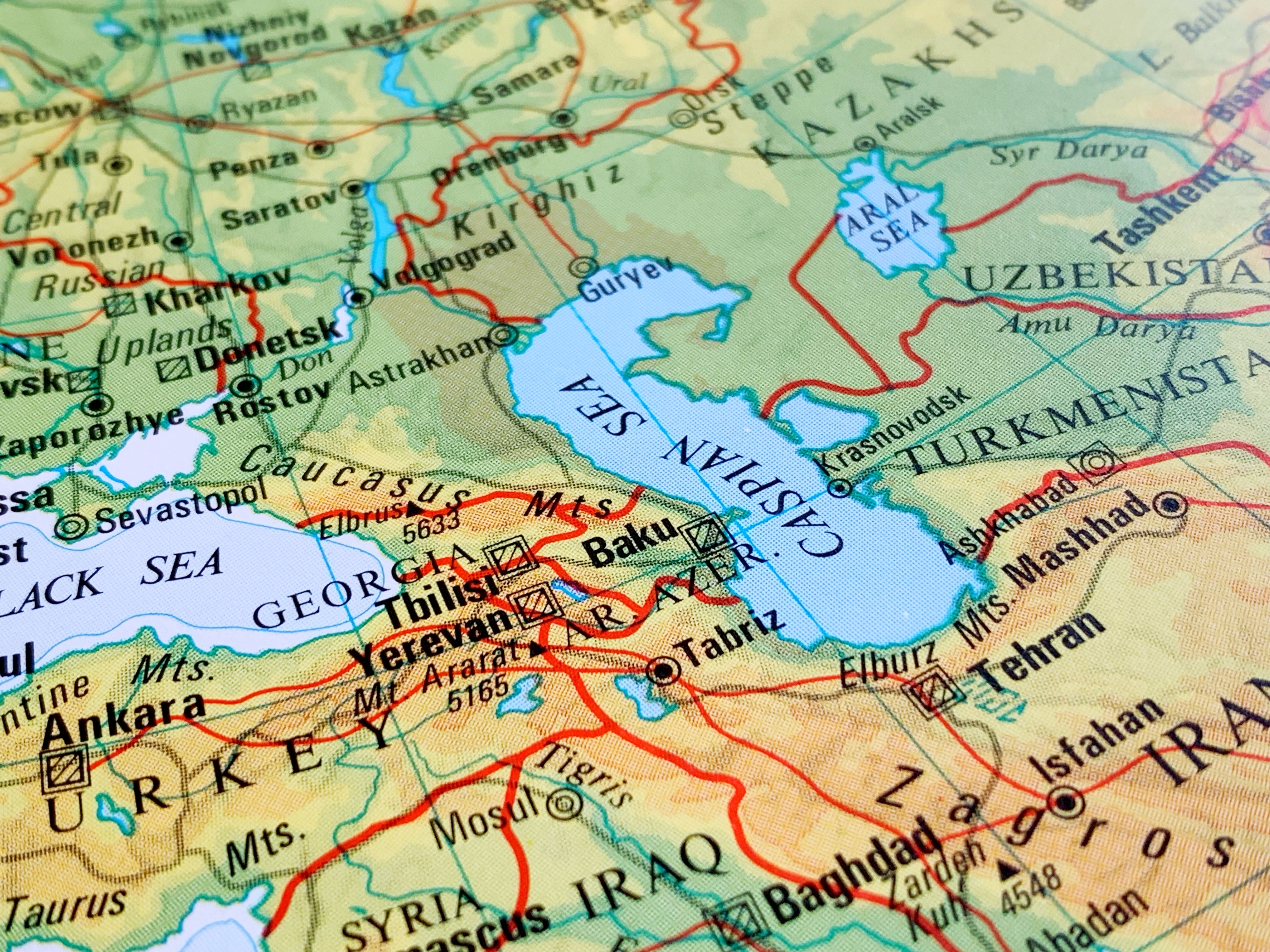The Caspian Sea as an Emerging Energy Hub : Potentials and Limitations

This report analyzes the prospects of the Caspian Sea region — and its key actors except for Russia and Iran — becoming an important energy hub serving the needs of the European Union (EU).

In addition to conventional means of energy (hydrocarbons), the paper explores new types of energy supplies that include green hydrogen, solar and wind power. It addresses the main research goal by analyzing both the resource potential of the region in terms of meeting the EU’s energy needs and whether the EU should engage with the regional actors and financially commit to expensive and rather risky projects and initiatives.
The author argues that, even though the region boasts large potential in both conventional and non-conventional energy resources, the EU strengthening and deepening of its integration with the Caspian Sea region, in terms of business and trade, entails many risks, both inherent to the region itself and emanating from other players that are, in one way or another, involved in the region’s affairs and intend to do so.
In September 2018, referring to Nord Stream 2 (the Russian-German gas pipeline project across the Baltic Sea), American President Donald Trump claimed in a speech at the United Nations (UN) General Assembly that Germany would become “totally dependent on Russian energy if it does not immediately change course”. Viewed as yet another extravagance at this time, his remarks took on a whole new meaning in 2022, when Russia cut off natural gas supplies to its key customers in the European Union (EU) following the outbreak of Russia’s large-scale military aggression against Ukraine. Russia’s blatant violation of international law and its contractual obligations prompted the EU to rapidly seek alternative sources of natural gas and oil to meet its energy needs. The old idea of exploiting the Caspian Sea region’s vast energy resources (in addition to other sources of energy) then came back to the fore. However, the EU’s “turn to the Caspian Sea” will likely be accompanied by several issues — economic, geopolitical, environmental, as well as value — and culture-based differences — that may put a strain on the EU’s plans.
Thus, two key questions emerge: to what extent is the Caspian Sea region sufficiently endowed with natural resources to meet the EU’s energy needs? What risks does this alternative entail, and what obstacles might stand in the way of its implementation?
Dr. Sergey Sukhankin is a Senior Fellow at the Jamestown Foundation and the Saratoga Foundation (both in Washington D.C.) and a Fellow at the North American and Arctic Defence and Security Network (Canada). He teaches international business at MacEwan School of Business (Edmonton, Canada). Currently, he is a postdoctoral fellow at the Canadian Maritime Security Network (CMSN).

Available in:
Themes and regions
ISBN / ISSN
Share
Download the full analysis
This page contains only a summary of our work. If you would like to have access to all the information from our research on the subject, you can download the full version in PDF format.
The Caspian Sea as an Emerging Energy Hub : Potentials and Limitations
Related centers and programs
Discover our other research centers and programsFind out more
Discover all our analysesDeathonomics: The Social, Political, and Economic Costs of War in Russia
The report attempts to outline and examine a truly new phenomenon in Russian society, dubbed “deathonomics”—the making of a mercenary army against the backdrop of the Kremlin’s war in Ukraine, eventually replacing both the Soviet (conscript) and early new Russian (contract) armies. It notes that, by the end of 2023, this trend had turned the military service into one of the highest-paying professions in the country, something not seen in Russia on such a scale since the late 17th century.
Russia's Asia Strategy: Bolstering the Eagle's Eastern Wing
Among Russia’s strategic priorities, Asia traditionally played a secondary role compared to the West. In the mid-1990s, then Foreign Minister Yevgeny Primakov initiated a rapprochement with China and India. Then, in 2014, deteriorating relations between Russia and the West prompted Moscow to begin its “great pivot to the East”.
Kazakhstan After the Double Shock of 2022: Political, Economic and Military Consequences
The year 2022 represented a dual shock for Kazakhstan. In January, the country faced its most severe political crisis since independence, followed in February by Russia’s full-scale invasion of Ukraine, which cast uncertainty over the borders of post-Soviet states. These consecutive crises profoundly shaped Kazakhstan’s domestic and foreign policy.

How the Russian Army Changed its Concept of War, 1993-2022
The traditional and high-intensity war that has occurred in Ukraine since Russia decided to invade raises a key issue: did post-soviet Russian strategic thought really prepare Russia for waging this war?









